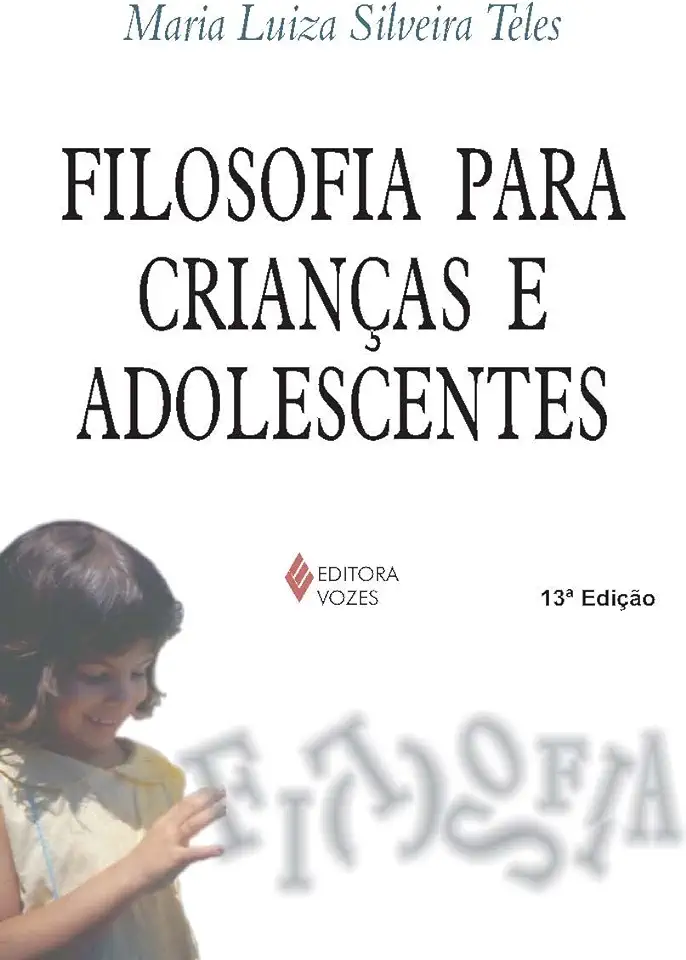
Philosophy for Children and Adolescents - Maria Luiza Silveira Teles
Philosophy for Children and Adolescents: Empowering Young Minds to Think Critically and Creatively
Introduction
In a world that is constantly evolving and presenting new challenges, it is essential for children and adolescents to develop critical thinking and creative problem-solving skills. These skills are not only crucial for academic success but also for personal growth and success in various aspects of life.
The Power of Philosophy
Philosophy, often perceived as a complex subject reserved for scholars, holds immense value for children and adolescents. It provides a framework for exploring fundamental questions about life, the world, and our place in it. By engaging in philosophical discussions, young minds are encouraged to think critically, analyze arguments, and develop their own perspectives.
Key Features of the Book
"Philosophy for Children and Adolescents" by Maria Luiza Silveira Teles is a comprehensive and engaging book that introduces philosophy to young readers in an accessible and enjoyable manner. Here are some key features that make this book a must-read:
Interactive Approach: The book employs an interactive approach, encouraging readers to actively participate in philosophical discussions and activities. This hands-on learning experience fosters a deeper understanding of philosophical concepts and their relevance to real-life situations.
Real-Life Examples: The book presents philosophical concepts through relatable and engaging real-life examples, making the subject matter relatable and relevant to young readers. These examples help bridge the gap between abstract philosophical ideas and everyday experiences.
Thought-Provoking Questions: Throughout the book, readers are presented with thought-provoking questions that stimulate critical thinking and encourage them to explore different perspectives. These questions encourage readers to challenge their assumptions and develop a deeper understanding of the world around them.
Diverse Topics: The book covers a wide range of philosophical topics, including ethics, epistemology, metaphysics, and aesthetics. This comprehensive approach exposes young readers to a variety of philosophical ideas and encourages them to explore their interests further.
Engaging Activities: The book includes interactive activities that reinforce the concepts discussed and provide opportunities for readers to apply their philosophical skills. These activities make learning philosophy fun and engaging, fostering a love for the subject.
Benefits of Philosophy for Children and Adolescents
Engaging in philosophical discussions and activities offers numerous benefits for children and adolescents, including:
Critical Thinking: Philosophy encourages young minds to think critically, analyze arguments, and evaluate evidence. This skill is essential for making informed decisions and solving problems effectively.
Creativity: Philosophy fosters creativity by encouraging children and adolescents to explore new ideas, challenge conventional thinking, and come up with innovative solutions.
Communication Skills: Engaging in philosophical discussions enhances communication skills by teaching young readers how to express their thoughts clearly and coherently, as well as how to listen attentively and respectfully to others' perspectives.
Empathy: Philosophy encourages empathy by exposing young readers to different viewpoints and perspectives. This understanding of others' experiences promotes tolerance and compassion.
Personal Growth: Philosophy provides a framework for self-reflection and personal growth. By exploring fundamental questions about life and their place in the world, young readers gain a deeper understanding of themselves and their values.
Conclusion
"Philosophy for Children and Adolescents" by Maria Luiza Silveira Teles is an invaluable resource for educators, parents, and anyone interested in nurturing the intellectual and emotional development of young minds. Through its interactive approach, real-life examples, thought-provoking questions, and engaging activities, this book empowers children and adolescents to become critical thinkers, creative problem-solvers, and empathetic individuals. By introducing philosophy to young readers, we can help them navigate the complexities of the world and become responsible and compassionate citizens of the future.